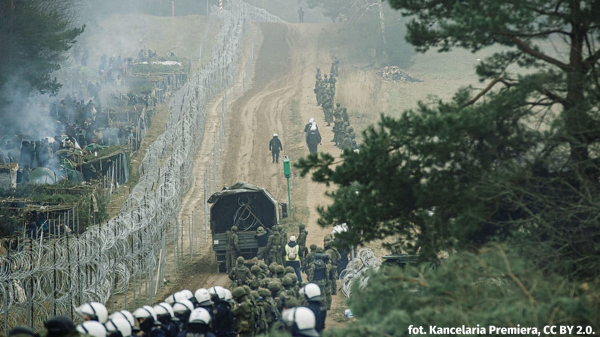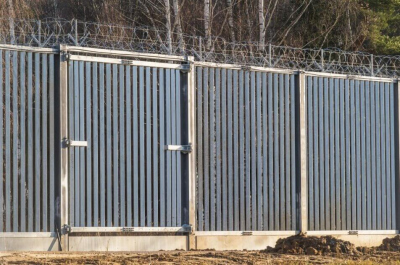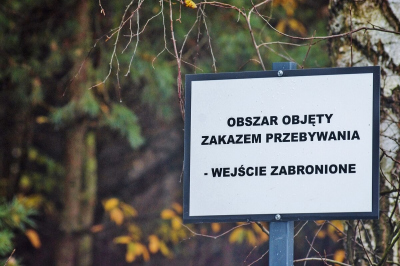
Due to the migration situation on the Polish-Belarusian border, the Helsinki Foundation for Human Rights today published a legal analysis of the situation of foreigners repatriated by Polish Border Guard officers from Poland to Belarus.
What’s next for the Usnarz group?
For over four weeks, a group of 32 foreigners from Afghanistan has been staying on the Polish-Belarusian border in the town of Usnarz Górny. On one side, the foreigners are cordoned off by Belarusian border guards, who prevent them from returning to Belarus, and on the other side, they are surrounded by a cordon of Polish Border Guard officers preventing them from entering Poland. Despite the foreigners’ applications for international protection in Poland, the applications were not accepted. The Polish government also ignored a temporary order issued by the European Court of Human Rights, ordering Poland to provide the foreigners with food, warm clothing and adequate shelter. The government argues that the foreigners remain on Belarussian territory.
The available recordings and information provided by the Human Rights Commissioner confirm that the foreigners applied for international protection in Poland. There is no doubt that the Border Guard, conduct border control procedures by preventing the foreigners’ entry into Poland and applications may be submitted during such procedures
– says Marta Górczyńska, a lawyer cooperating with HFHR and author of the legal analysis.
According to the law, asylum applicants may submit such a request to any state official, anywhere, including outside official border crossing points, and such a request need not take any particular form. Refusal to accept such an application may violate the principle of non-refoulement, i.e. the principle of not returning refugees to countries where they are in danger
– she adds.
Does the Border Guard follow procedures?
At the same time, the announcements of the Border Guard published through its official media, show that daily attempts are being made to cross the border illegally by groups of foreigners from e.g., from Iraq, Afghanistan, Somalia, Syria, Tajikistan or the Democratic Republic of Congo. However, this information does not indicate what procedures are being followed with respect to these persons and how and through which border crossings they are returned to Belarus, especially in view of the fact that Belarus has suspended the application of the EU readmission agreement (i.e., allowing refugees to be sent back to Belarus after they illegally cross EU borders through its territory). According to information provided by the Podlasie Border Guard Unit, 3,500 foreigners attempted to cross the Polish-Belarusian border unlawfully in August 2021, and the Border Guard officers thwarted 2,500 thousand of these attempts.
Officers have to follow legal procedures not only for foreigners who appear at official border crossing points, but also for those who cross the border illegally outside border crossings. Should a foreigner apply for protection, the refugee procedure shall be initiated, and in any other case – the procedure for sending the foreigner back from the territory of Poland. Neither national law nor EU law provide for the possibility of actually returning foreigners abroad without issuing an appropriate decision
– adds Marta Górczyńska.
In the published analysis, HFHR further notes that foreigners cannot be transferred to Belarus if that country refuses to admit them. It is also illegal to transfer foreigners to the forest instead of to official border crossings. Such activities are not only not supported by regulations, but also pose a great risk to foreigners expelled in this manner.


